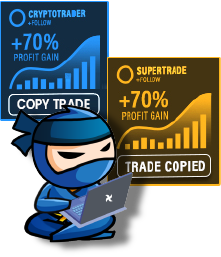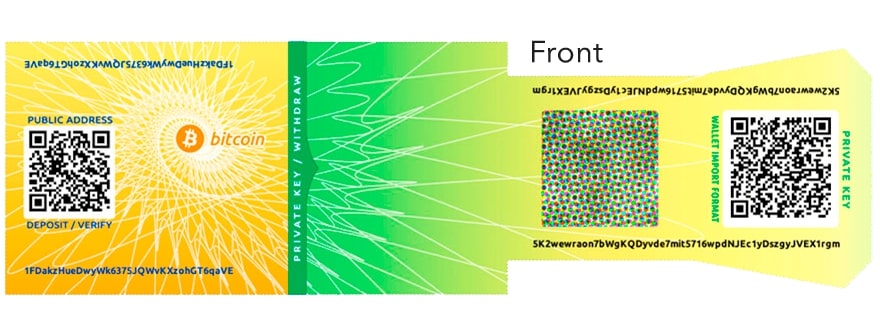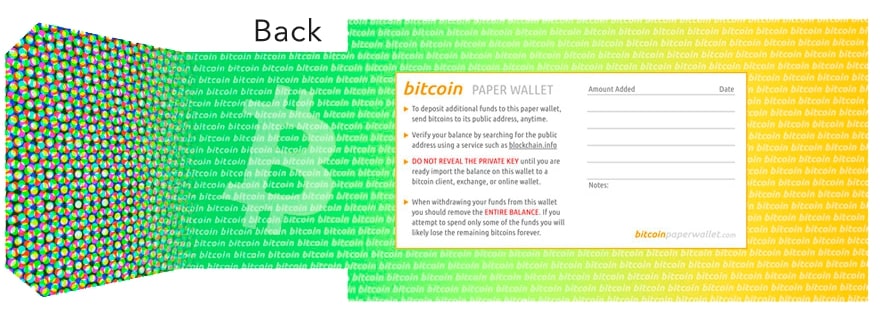- Marco Fisher
- No Comments
- Published: October 1, 2018
- Modified: May 27, 2021

“MoolahNinjas main goal is to help our readers improve their financial lives. We partner with other companies that share that same vision. Some of these links in this post may be from our partners. This is how we make money.”
The different bitcoin wallet options are:
Hardware Wallets

Hot Wallets or Online Wallets
Offline Software Wallets

Paper Wallets
In this article, we’re going to go over the options, the pros and cons of each, and which we recommend. By the end of the article, you’ll be well informed on the topic and you’ll know how to keep your hard earned Bitcoins safe.
Why Do You Need a Bitcoin wallet?
Let’s start with the basics: Bitcoin. Like the cash in your physical wallet, Bitcoin is a currency but unlike cash, it is not a piece of paper that is physically handled. Bitcoin is a line of digital code that represents value so you cannot physically hold a Bitcoin despite what all the fancy stock photos look like.
Once you understand how Bitcoin works, it’s relatively easy to start making money from it…so it’s important to keep it safe! The Bitcoin code you absolutely must store and protect through a wallet is called a private key: Private keys are codes with corresponding public keys. You must keep your private keys protected in order to safeguard the Bitcoin you own.
Not only does a Bitcoin wallet help protect your private key, but without the wallet you won’t be able to buy, sell or trade Bitcoin or other cryptocurrencies. It’s actually one of the first things you must buy when you start purchasing any cryptocurrency.
There are several different types of Bitcoin wallets for you. Each has various levels of security, pros and cons and in some cases, different purposes.

How to Stay Secure with Bitcoin
Before we start digging into the types of what Bitcoin Wallets there are and learning about altcoins (altcoins are just different cryptocurrencies), let’s first talk about the biggest concern everyone has about digital wallets: how do you ensure your security?
While making money with bitcoin is a great way to work from home, you need to be careful: Wallet types will play a lot in the type of security you receive. Online wallets and offline software wallets that are hosted on a web account, computer, or mobile can and do run a higher risk of being targeted and hacked.
On the other hand, hardware wallets can be damaged, lost, or stolen if not secured. Paper wallets aren’t durable and can also be stolen or lost.
If you are planning to invest in Bitcoin or grow your earnings, security is paramount. Here are a few tips to keep in mind:
Diversify
Encrypt
Back Up
Limit Access
Don’t have your wallets out and available for everyone to see. Limit when you have your wallets visible to when you have privacy. While it’s unlikely that someone will peek over your shoulder and memorize all of your private keys in one glance, this method also helps to minimize the risk of you losing your hard earned bitcoins.
Ultimately there is always a chance that you can lose Bitcoin in one way or another but the same can happen with your own money as well. The bottom line with keeping your Bitcoin Wallet secure is to choose the right wallet you think you will use your Bitcoins for and to take steps to protect your data as much as possible.
Types of Bitcoin Wallets and Your Options
Now, onto the types of Bitcoin Wallets! We will go over each type of wallet, the pros and cons and some recommendations of the best wallets for you to use. These will be necessary for making extra income with your secured Bitcoin.
Hot Wallets or Online Wallets
When you start out with Bitcoin, you first establish a hot wallet or online wallet to get going. These store your Bitcoin online and are typically used to perform transactions. Some online wallets can be used across multiple platforms (desktop and mobile) and most provide some level of security like 2-factor authentication.
It isn’t recommended that you store all of your Bitcoin in an online wallet as it is the most vulnerable to being hacked and stolen. However, it is perfect for regular and daily transactions.
The best tip for having an online wallet is to use it as you would your own cash. You wouldn’t keep your savings in the wallet you carry in your back pocket or purse, would you?
But you would carry enough money on you so you can, for example, buy food or make other various small transactions. The same principle applies to an online bitcoin wallet. Just keep your spendable Bitcoins there and store the rest in a more secure wallet.

Get a cheat code to
making money trading
Copy pro-traders with the click of a button
Our Recommendations:

For those who are specifically looking to invest in Bitcoin, Bitcoin Wallet is the most obvious pick. It’s directly connected to the Bitcoin network making it a more secure option compared to using another third party option. It’s also easy to use which is perfect for anyone just getting started. They also have a mobile Bitcoin Wallet for easier access to your portfolio.

Coinbase is one of the most popular Bitcoin wallets on the market. While this isn’t a popularity contest, Coinbase is popular for a few reasons. One is that it is easy to use and secure at the same time. It also supports more than just Bitcoin and has access to various markets. So if you’re looking to buy Bitcoin or other altcoins and get into trading cryptocurrency in general, Coinbase is a great platform to start.

Blockchain.info is also a good Bitcoin Wallet for beginners. It has an easy-to-understand platform and supports multiple cryptocurrencies. One security risk is that it doesn’t require identification (however it is encouraged) but if you are just starting out and exploring the world of cryptocurrency and Bitcoin, this is a great place to learn and experiment.
Offline Software Wallets
Offline software wallets or desktop wallets are Bitcoin wallets that are stored directly on your computer. There is no need to be connected to the internet to access your wallet. It is a software application that must be installed but it does provide independence from online exchanges.
It is far more secure as your identity, data and private keys are stored directly on your computer. It is also less susceptible to getting hacked and can provide recovery systems in case something goes wrong. Some desktop wallets also have mobile applications.
This isn’t to say that this is the perfect option. Even though this wallet is available offline it is also still software. If your computer is infected with malware or specifically hacked you can, again, lose your Bitcoins. Moreover, if your computer is corrupted or broken beyond repair, you can lose your wallet.
Our Recommendations:

Electrum is a desktop wallet that is compatible with Linux, Mac and Windows operating systems. It’s private as well as fast and easy to use for both beginners and advanced users. However the most attractive feature is that it also provides support for hardware wallets so you can backup your wallet. Finally, if something were to happen to your computer is also supports a recovery process in case of emergencies.

Exodus is a great desktop wallet option for multiple cryptocurrencies with several security measures and privacy features. It’s also free. Not only can you manage your portfolio with its easy layout but it also can exchange your cryptocurrencies.

Mycelium is a mobile-only wallet that currently only supports Bitcoin. It might not be as attractive since there is no desktop feature and the layout might not be as friendly to beginners. However, it has several interesting features and options for those who are more confident with managing their Bitcoin portfolio from a mobile device.
Hardware Wallets

If you have or plan to have a substantial Bitcoin portfolio, it would be best to invest in a hardware wallet to ensure the most security to your Bitcoins. Hardware wallets are specific external drives that store your Bitcoins completely offline. This method is called cold storage.
Much like a USB drive or an external hard drive, in order to access your wallet it must be plugged into your computer or mobile device. From there you can transfer some of your funds to an online wallet if or when needed, and then unplug it.
A hardware wallet can be an external hard drive but there are specific hardware wallets catered just for Bitcoin and cryptocurrency storage. These can cost around $100 per wallet but if you are looking for security, it is worth the price.
The biggest pro to this is that it is, in fact, one of the most secure Bitcoin Wallet methods. The only danger is that it is subject to wear and tear or could be lost or stolen. So take care of your hardware wallet!
Our Recommendations:

Popular among the Bitcoin wallet community, Ledger is a safe and affordable option with much to offer as a hardware wallet. It’s similar to a USB drive with a display used to confirm a transaction, and has 2-factor authentication as well as a pin-code lock option. Its internal hardware is also tamper proof. The Ledger Nano is an excellent and secure choice for anyone looking for a secure and discretely portable hardware Bitcoin wallet.

Trezor is another popular and secure option for hardware wallets. Trezor is more expensive than the Ledger Nano wallet making it a little bit of a con but not by much. It’s also compatible with some desktop or offline wallets if you’re looking for a secure backup option.

Paper Wallets


Another secure and completely offline Bitcoin wallet option is to have a paper wallet. A paper wallet is literally a print out of your wallet. How is this secure? Well, it is complicated to set-up but it is a very discreet way to store your wallet as its files can’t be corrupted and it can’t be hacked.
But of course, paper Bitcoin wallets are made out of paper so they can be fragile. If you choose to go this route, make sure to waterproof, seal, and fireproof your wallet. Finally, make sure you don’t lose it! If someone has your paper wallet they can easily access your Bitcoins!
Our Recommendations:

BitcoinPaperWallet
This is set up to be more user friendly for those choosing the paper wallet route. It doesn’t cost to create a basic paper wallet but there are other security and tamper checks you can add for an additional cost if you want. Also, its support feature can help if you run into any problems setting up your paper wallet.

BitAddress
BitAddress is a little more complicated to use if you have never set up a paper wallet before. It isn’t as intuitive as BitcoinPaperWallet but it does give you the independence to make your own paper wallet. Before you start with them, it’s important to thoroughly educate yourself on how to use a paper wallet.
Conclusion: Our #1 Recommendation for You
And there you have it! An overview of what a Bitcoin wallet is and how to use it. Admittedly, there are several types of Bitcoin wallet options and it can be confusing on which is the best to use.
 For the sake of protecting your assets and investment, our best recommendation is to go ahead and buy an offline wallet like Ledger Nano. You will ultimately have an online Bitcoin wallet of some sort in order to conduct transactions but it isn’t recommended to use them for long-term storage.
For the sake of protecting your assets and investment, our best recommendation is to go ahead and buy an offline wallet like Ledger Nano. You will ultimately have an online Bitcoin wallet of some sort in order to conduct transactions but it isn’t recommended to use them for long-term storage.
More importantly, if you’re going to use cryptocurrency like Bitcoin as your next investment move, stay on the safe side and purchase the most secure storage option available!
Our pro tip: If you’re looking for a way to start loading up your wallet and want an alternative to buying bitcoin properly, we recommend you look into completing small tasks in exchange for bitcoin. Some examples include: testing apps, filling out online surveys, and just viewing web pages.
The bottom line is that the best choice is based on what you are going to do with Bitcoin, how much you have and your need for security. It doesn’t matter if you’re just starting out or are one of the many Bitcoin Millionaires, you must make sure to protect your Bitcoin!
We’ve provided you with a summary of the various options and it’s now up to you to research what bitcoin wallets fit your needs and how far you want to go in order to protect your future Bitcoin fortune!













